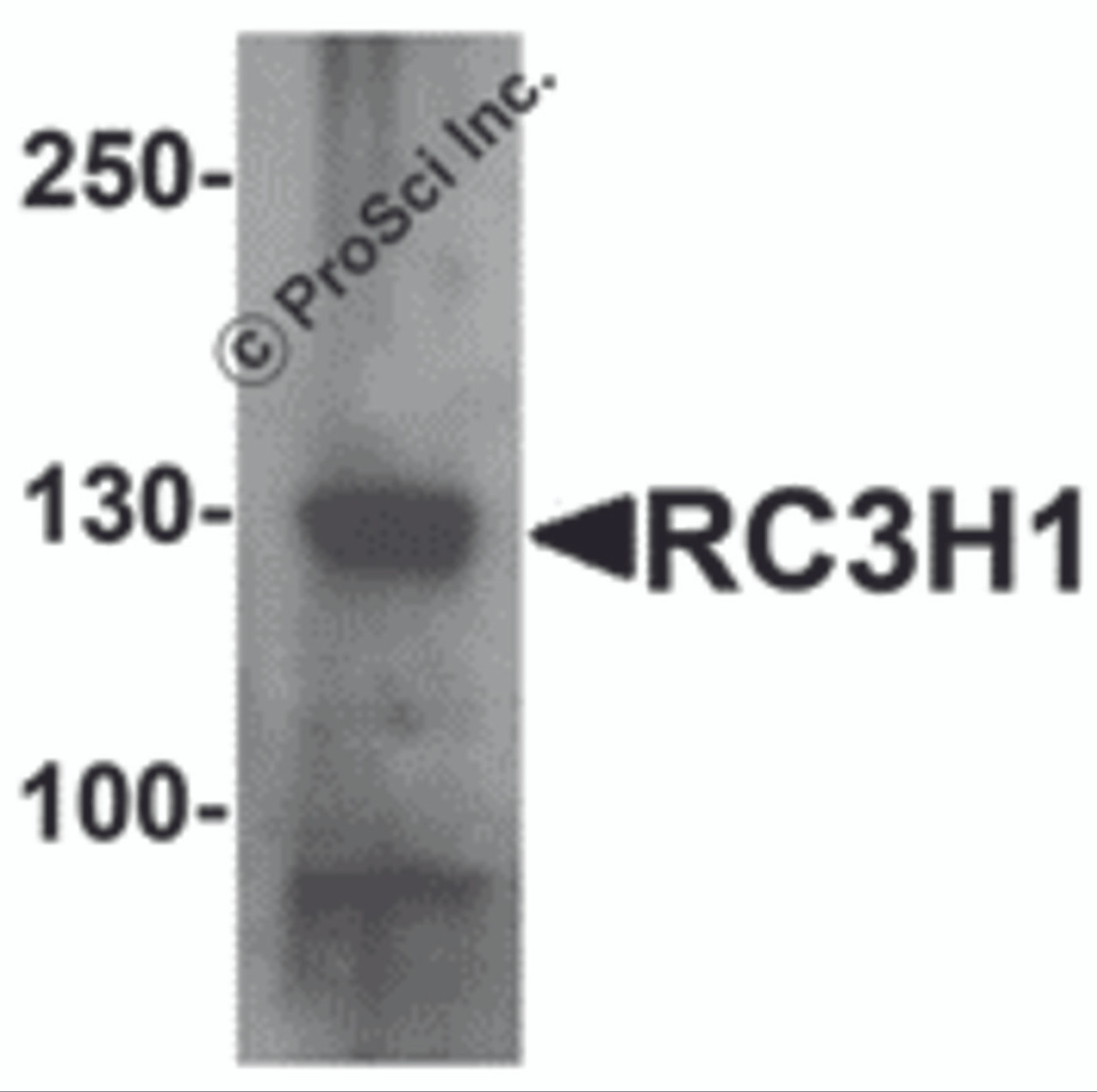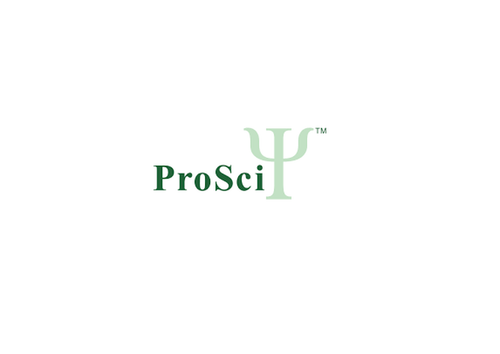Product Description
RC3H1 Antibody | 7251 | ProSci
Host: Rabbit
Reactivity: Human, Mouse, Rat
Homology: N/A
Immunogen: Rabbit polyclonal RC3H1 antibody was raised against an 18 amino acid peptide near the carboxy terminus of human RC3H1.
The immunogen is located within amino acids 1040 - 1090 of RC3H1.
Research Area: Immunology
Tested Application: E, WB, IHC-P, IF
Application: RC3H1 antibody can be used for detection of RC3H1 by Western blot at 1 - 2 μg/mL.
Antibody validated: Western Blot in human samples; Immunohistochemistry in human samples and Immunofluorescence in human samples. All other applications and species not yet tested.
Specificiy: At least three isoforms of RC3H1 are known to exist; this antibody will detect all three isoforms.
Positive Control 1: Cat. No. 1201 - HeLa Cell Lysate
Positive Control 2: Cat. No. 11-801 - Human Small Intestine Tissue Slide
Positive Control 3: N/A
Positive Control 4: N/A
Positive Control 5: N/A
Positive Control 6: N/A
Molecular Weight: 125 kDa
Validation: N/A
Isoform: N/A
Purification: RC3H1 Antibody is affinity chromatography purified via peptide column.
Clonality: Polyclonal
Clone: N/A
Isotype: IgG
Conjugate: Unconjugated
Physical State: Liquid
Buffer: RC3H1 Antibody is supplied in PBS containing 0.02% sodium azide.
Concentration: 1 mg/mL
Storage Condition: RC3H1 antibody can be stored at 4˚C for three months and -20˚C, stable for up to one year.
Alternate Name: RC3H1 Antibody: RNF198, ROQUIN, KIAA2025, RNF198, Roquin-1, RING finger and C3H zinc finger protein 1, Roquin
User Note: Optimal dilutions for each application to be determined by the researcher.
BACKGROUND: RC3H1 Antibody: The ring finger protein RC3H1, also known as Roquin, is a highly conserved member of the RING type ubiquitin ligase protein family whose M199R mutation leads to the excessive production of follicular helper T cells and germinal centers in the sanroque strain of mice, a strain with excessive IL-21 production and high titers of autoantibodies. The complete loss of RC3H1 induces early death and immune deregulation but not autoimmunity in RC3H1-null mice, suggesting that the mutant RC3H1 is more disruptive to the immune system than its complete loss.
 Euro
Euro
 USD
USD
 British Pound
British Pound
 NULL
NULL
















